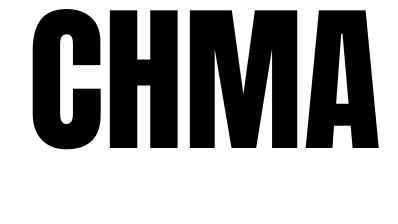
The word ‘undemocratic’ has come up a number of times in describing the province’s forced amalgamation of Sackville, Dorchester and three surrounding districts. There’s the fact that despite official protest by both the elected councils of Dorchester and Sackville, the plan is being forced through by the province. There’s also the fact that the province has retained complete control on all decisions about the new Entity 40, and has refused to conduct any public engagement on key decisions, or even open up its advisory committee meetings to the public.
The first of the big decisions to be made by provincially-appointed consultant Chad Peters is up for discussion tonight, at a closed meeting of an advisory committee made up of Shawn Mesheau and Andrew Black from the town of Sackville, Debbie Wiggins-Colwell and Robert Corkerton from the village of Dorchester, Mary Ellen Trueman from the Point de Bute Local Service District (LSD), and Matt Beal from the Dorchester LSD. (There are as yet not representatives from the Sackville LSD on the committee.)
The committee will be asked to come to a consensus on how the new Entity 40 council will operate, and if they can’t, Peters will make the call. The decision will be need to be made by either Wednesday or Friday, depending on who you ask, but it will be made this week.
The lightning-fast decision process will determine how many seats there will be on a new Entity 40 council, and how those seats will be filled, either by election at-large, or election by ward, or some combination.
Currently, both Sackville and Dorchester have completely at-large systems, meaning that elected councillors represent the whole municipality, and everyone gets to vote on each seat. Municipal ballots in Sackville and Dorchester include a list of those running for a seat on council, and up to eight (for Sackville) or four (for Dorchester) slots for voters to fill with those names.
That will likely change for the next municipal election, slated to happen this November.
At Monday’s council meeting, Mayor Shawn Mesheau said that what he’s heard from councillors in private communications is that wards will need to be part of the mix in order to assure representation from the local service districts, but that there could be a combination system recommended as well. “You know, maybe it’s at-large in Dorchester, at-large in Sackville, but maybe it’s wards outside those areas. Those are some of those things that have been floated around.”
Ballots for a ward system are different for the residents of each ward, with candidates running for that ward only, similar to ridings in provincial or federal elections.
CHMA spoke with two political scientists to find out what the pros and cons of different council compositions are, and to find out what’s at stake in how the province designs a council?
You can listen to full interviews on municipal reform with Mario Levesque and Geoffrey Martin below:
What’s at stake? Why council make-up matters.
Although the province has taken control of reform decisions for the next year, many of the long term amalgamation decisions that will directly impact people’s lives will happen after January 2023, and will be made by a new council. Mt A political scientist Geoffrey Martin, himself a former Sackville town councillor, says a new Entity 40 will have a combined list of assets that it will need to manage, including town halls, fire departments, and recreation facilities. Deciding what to do with all those assets will likely fall to a new council.
“Are we going to have a satellite office in Dorchester? Or are we going to have some municipal departments in Dorchester?” wonders Martin. “How are we going to provide municipal services to the new large municipality? That’s policing, fire protection, recreation. There’s an awful lot to figure out, and a lot of it’s probably going to fall to a new Entity 40 council.”
There will also be decisions made about taxation. Minister of Local Government Daniel Allain has given transition facilitators like Chad Peters the power to set tax rates and budgets for 2023, but he had also said that he won’t be making big changes when it comes to taxation, leaving the tough decisions for new councils who will take over after Bill 82 expires in January 2023.
How to choose: wards vs at-large councils
“I’m not sure if one system is better than the other,” says Mario Levesque, head of politics and international relations at Mount Allison. “We have to recognize the advantages and disadvantages of each, or what are the limitations of each, and then try to take steps to mitigate some of the disadvantages.”
Levesque says one advantage of at-large systems over ward systems is that those elected tend to consider the interests of the whole municipality, because their electors come from the entire region. Whereas, “people elected in a ward system are more, some say, parochial, and that they really only have interest in what goes on in their wards.”
An at-large council might benefit from being more unified, whereas a ward system council could get into internal competition of interests between communities, and what Levesque calls a “game of horse trading,” whereby councillors trade support for projects that might benefit their constituents. That can also drive up costs for the municipality, says Levesque, as the pressure is on to deliver for each ward. “You have to give some goodies to each part of the municipality, so to speak. And so that tends to drive costs up a little bit higher,” says Levesque.
An at-large system gives voters greater choice on the ballot, in that they have a say in each council seat to be filled. And there’s less chance of acclamation, says Levesque. In the big pond of an at-large system, there is always likely to be competition for seats, whereas some wards will not have people come forward to challenge the incumbent councillor. Finally, Lesvesque points out that citizens in at-large systems tend to have greater access to their councils, because they each have a number of representatives. Whereas in a ward system, residents may feel limited to their elected ward representative.
The list of advantages for an at-large system is long, but there is one giant Achilles’ heel: it just doesn’t work when it comes to representing the breadth of interests and living experiences you find in a really large municipality.
“How does someone on XYZ Street in Sackville know anything about British Settlement or Dorchester or Point de Bute? So you can really question that in terms of how democratic is this?” says Levesque.
An at-large system can favour incumbent candidates, or those with more resources to throw at their campaigns. A candidate running in a ward has lower costs and won’t have to travel as far when campaigning. In addition, they “might know the issues a lot better,” says Levesque, “because you’re just concentrating on a much smaller area.”
A purely at-large system could easily end up electing a full slate of Sackville-based candidates, given the fact that there’s just way more voters in the town than outside of it. A ward system, on the other hand, is “more representative of all parts of the community overall, in that you’re assured of getting someone from each of the wards,” says Levesque. “A greater diversity of views may be had with [a ward system].”
Geoffrey Martin is pro-wards, but with a big caveat. “I think that absolutely there has to be assurance of Dorchester and rural representation on the council,” says Martin. “But I also think that this representation does have to be figured out on a representation by population basis.” He describes a possible combination scenario, where the town of Sackville retains aspects of its at-large system. The former town could operate as a large ward, with a certain number of seats elected at-large within it. And then beyond the town there would be defined wards in other communities like Dorchester and Point de Bute.
Combination systems are not unheard of. There are nine municipalities in New Brunswick who currently have combined systems, including Dieppe, Riverview and Moncton. In those systems a number of councillors are elected at-large along with a mayor, and then there are wards that also elect localized representatives.
When it comes to wards, the biggest challenge is where to draw the boundaries. Mayor Mesheau told council Monday that at least one councillor has suggested a possible ward map for the new Entity 40, but no ideas have been shared publicly, and the province has indicated the boundaries will not be subject to public engagement or even transparency.
Wards also need to be responsive to population growth, and need to be adjusted over time. Martin says on the the reasons that the town of Sackville moved from its previous ward system to an at-large system was to avoid the recurring need to redraw ward boundaries.
Even by including a ward system that will ensure representation for communities outside of Sackville, the reality is that with representation by population, the new Entity 40 council will be dominated by Sackvillians. But having minority representation on a new council is still useful, says Martin. “A minority voice who’s persuasive, coming from outside of the town of Sackville, can make a lot of headway in ensuring that benefits are not all concentrated within the former town,” he says. They can help ensure, “there is attention paid to the issues of the 30% or 40% who live outside the former town.”
It will also take political goodwill and community-oriented thinking on the part of all elected councillors to make sure that decisions are for the wider public good, and don’t benefit one community at the expense of another.
“Whatever system is chosen or imposed on us,” says Levesque, “there’s going to have to be a lot of political goodwill by whoever is on council at that time, to understand each other. And to have a goodwill in terms of making it work.”
